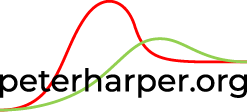EDUCATION
As of 2018 I am doing quite a lot of teaching at university level. For the most part I am telling my students what I think they ought to know about ‘sustainability’ but I am becoming increasingly aware that what many people expect is different from what I am teaching. I have now got to a point of trying to analyse two different approaches, which might be called ‘macro-’ and ‘micro-sustainability’ . Macro-sustainability is strategic, largely top-down and involves rapid transitions in factors like carbon emissions and ecosystem services. Micro-sustainability is tactical, bottom-up and involves small local changes assumed to be going in the right direction at the right pace. It can be readily argued that both have a role to play, but for the most part the education system has vigorously embraced micro-sustainability while neglecting macro-sustainability. What follows are some writings on these matters. See also the October 2018 Blog, The Great Paradox.
Micro and Macro-sustainability [.docx, 2018]
In 2016 I attended a conference largely concerned with ‘micro-sustainability’: the second conference on Sustainability in Higher Education. After the conference feedback was invited, with a view to publishing considered comments. I submitted the paper below, provocatively entitled ‘Peer-Reviewed Hippies’, and this was acknowledged as significant, but not published or followed up. It was in a sense ‘passively suppressed’. The reason is probably that what I am suggesting is considered to be a completely different subject outside the framework of ‘sustainability’ as commonly understood, and therefore irrelevant. This is odd, but part of the Great Paradox.
Peer-Reviewed Hippies [.docx, 2016]
In 2019 I followed this up with a two-handed satirical sketch featuring myself and my friend Professor Stephen Peake of the Open University. This was presented at the Fourth conference on Sustainability in Higher Education, with a decidedly mixed reception! Here is the script:
Eco-Emergency! [Word, 2019]
An article on the same theme was published in Times Higher Education, albeit with a ho-hum title provided by the editors:
HE must embrace technical solutions to climate change [Word, 2019]
An academic-style article was invited for a special issue of the International Journal of Sustainability in Higher Education. Stephen Peake and I submitted the following, and it was accepted by the reviewers but subsequently rejected by the editors — not, we thought, on account of its quality, more because it was too close to the knuckle. Judge for yourselves.
Emergency Technocentrism [Word, 2020]
One of the biggest arguments in Climate Change is how much effort to devote, respectively, to adaptation, or to prevention. A sophisticated version of adaptationism has been widely circulated, authored by Professor Jem Bendell. I appreciate Bendell’s efforts, but profoundly disagree with his argument, that skates over appalling ethical implications. This has not been published.
Contra Bendell [Word, 2020]
EXPANDED TEACHING IN HIGHER EDUCATION
In 2015 the University of Bath held a one-day conference with the purpose of exchanging new ideas for reaching beyond standard classroom teaching. Here are some of the notions I presented, announced by the anti-app logo above: Switch off that smartphone, and get out into the real world.
Out of the Box! [docx, 2016]
Here is a summary of some of the innovations I have tried out at the University of Bath:
Teaching with Haptic and Ludic Methods [docx,2024]
I have also experimented with other teaching formats in order to get students or audiences to see issues from both sides. One of these efforts was The Trials of Daisy the Cow, and another Eco-Emergency! but here is another, older format, where I take opposite sides in a debate, then chair a discussion:
Fossil fuels pro and con [docx, 2005]
GENERAL PUBLIC AWARENESS
In the town where I live, I have taken on responsibility for an acre of wildflower meadow, and I have produced explanation boards for the general public:
The Wildflower Meadow (pdf, 2018) The Wildflower Year (pdf, 2018) Insects among the flowers (Word, 2018).
A short report of my experiences is here:
The Meadow [Word, 2019]
A younger model


